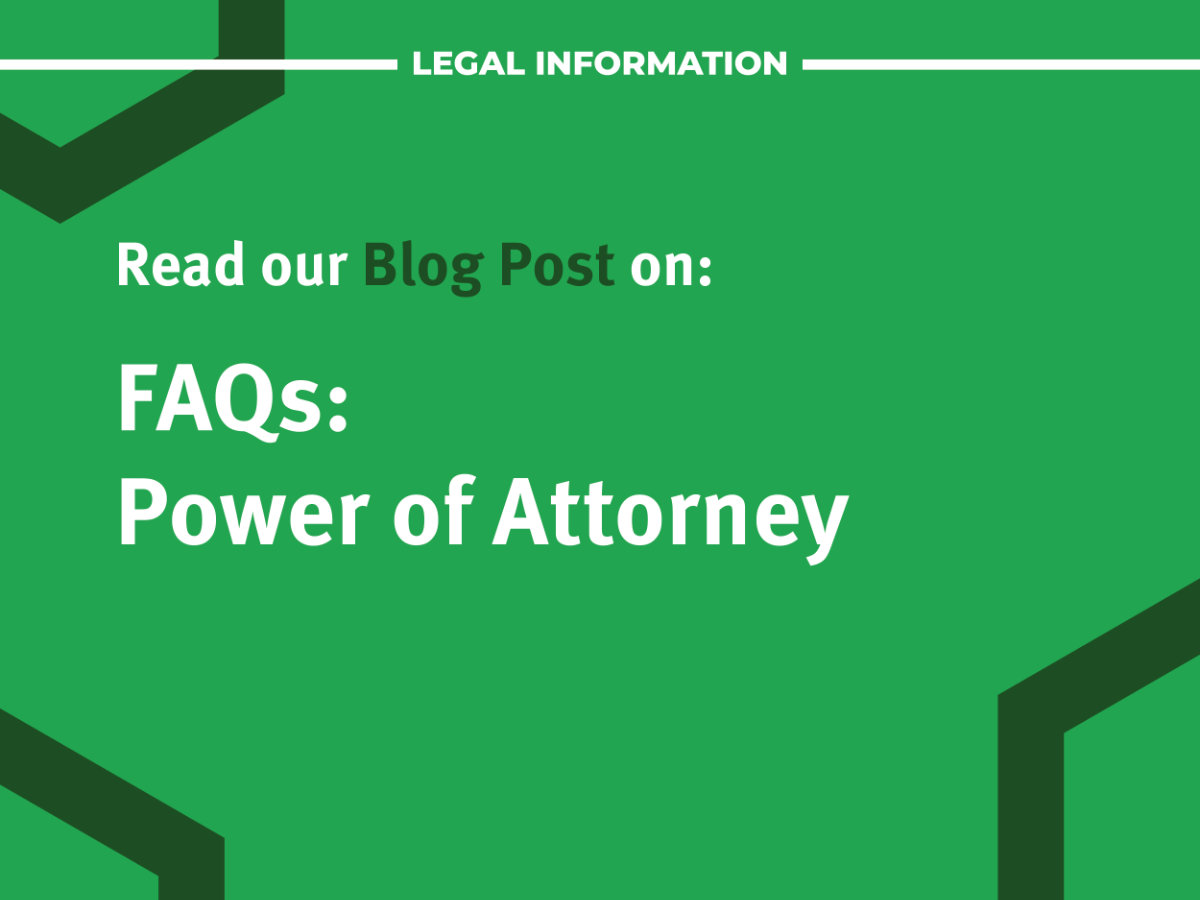
Power of Attorney FAQs
In the event that you become incapacitated and are unable to manage your own affairs, a power of attorney enables someone else to act on your behalf. We look at a few often-asked queries about powers of attorney and how they work.
You must choose your power of attorney someone you trust to have the mental capacity to make decisions on their behalf. Contact a notary or solicitor to get legal advice.
There are two types of power of attornies.
The simplest form of power of attorney, known as a general power of attorney, can only be used to delegate control over the donor’s property and financial matters. This kind of contract is helpful for immediate purposes, such as when a donor is going on vacation and wants the attorney to handle their business while they are gone. The Donor is still free to handle their own affairs, and the Attorney will be held responsible for any choices or actions taken on their behalf in front of the Donor.
Enduring Power of Attorney: This kind of power of attorney is no longer possible to create, but any EPAs already created in the past are still in effect and will continue to be so until they are revoked or until the donor passes away. An EPA will cover the donor’s assets and financial affairs and permit the attorney to act on the donor’s behalf; nevertheless, the donor is still free to make these decisions on their own. The power granted to the Attorney “endures” through the Donor’s illness, allowing the Attorney to continue managing the finances on the Donor’s behalf, even if the Donor loses the ability to manage their own affairs.
Frequently asked questions
1. If you have a power of attorney, do you still need to register for guardianship?
If necessary, a power of attorney will grant your chosen attorney a variety of distinct authorities to act on your behalf. The attorney will be prevented from taking specific actions if the power of attorney paperwork does not grant them a specified authority (for example, having the ability to sell a house). A guardianship order (or an intervention order) will be necessary for this situation. In order to try and cover all potential scenarios, we advise incorporating broad and adaptable powers in a power of attorney.
2. Can a power of attorney be overridden by guardianship?
A guardianship order will not supersede an existing power of attorney if it just adds new powers to it; rather, the two documents will cooperate in this situation. The power of attorney would no longer be valid and the guardianship order would be used in its place if the guardianship order totally replaced the power of attorney (for instance, if an attorney had not been operating properly and the power of attorney was revoked).
3. Will a power of attorney be necessary after death?
After the grantor’s passing, powers of attorney are no longer valid. A will is necessary to guarantee that your final wishes are carried out.
4. What distinguishes a power of attorney from a health care proxy?
A power of attorney can grant the agent all the rights the principal would have, including financial and welfare authorities. A power of attorney must be given when the person is still able to do so. A living will, also known as a “advance directive,” will be created as part of your power of attorney. This provides an express wish that your life should not be sustained by artificial means and medical treatment should be limited to keeping you comfortable and free from pain where you are unable to communicate or make decisions about your medical treatment. In the United States, someone in this position is known as a healthcare proxy, but this term is not used in Scotland.
5. What is a lasting power of attorney?
A lasting power of attorney is an English version of a Scottish continuing and welfare power of attorney. We have colleagues who are dual-qualified and we can offer advice on both Scottish and English powers of attorney.
6. Why would someone require legal counsel?
Even though someone is currently in full control of their affairs, accidents and sickness can still occur. This document’s creation is a result of someone’s future planning.
7. How many POAs can I appoint?
The Donor may designate as many Attorneys as they like, but they must keep in mind that they must get along. The attorneys deal with particular issues like:
Joint: Regardless of their physical proximity to one another, the Donor’s chosen Attorneys must work together to make decisions and execute legal documents.
Joint and Individual – Any one of the Attorneys has the authority to act alone and sign documents on behalf of the Donor without consulting the other Attorneys.
A combination: The donor might want two of the attorneys to decide on a certain topic together. Who can do what and when must be specified clearly in the instructions provided by the donor.
Contact us and speak to a solicitor regarding poa
Clarity SImplicity will give you legal advice on creating a will or appointing a power of attorney in Scotland. Wills by Brodies enables you to begin writing a Scottish will or designating your power of attorney online at a time that works for you while guiding you step-by-step through the procedure.
